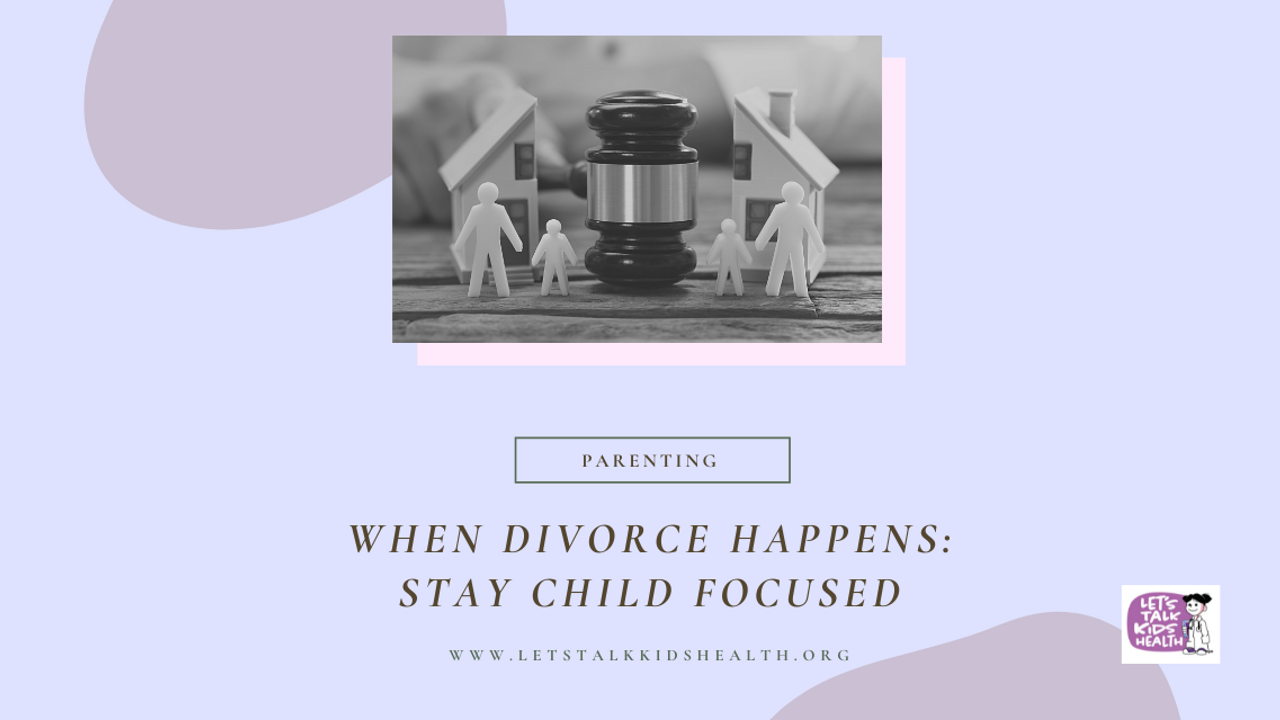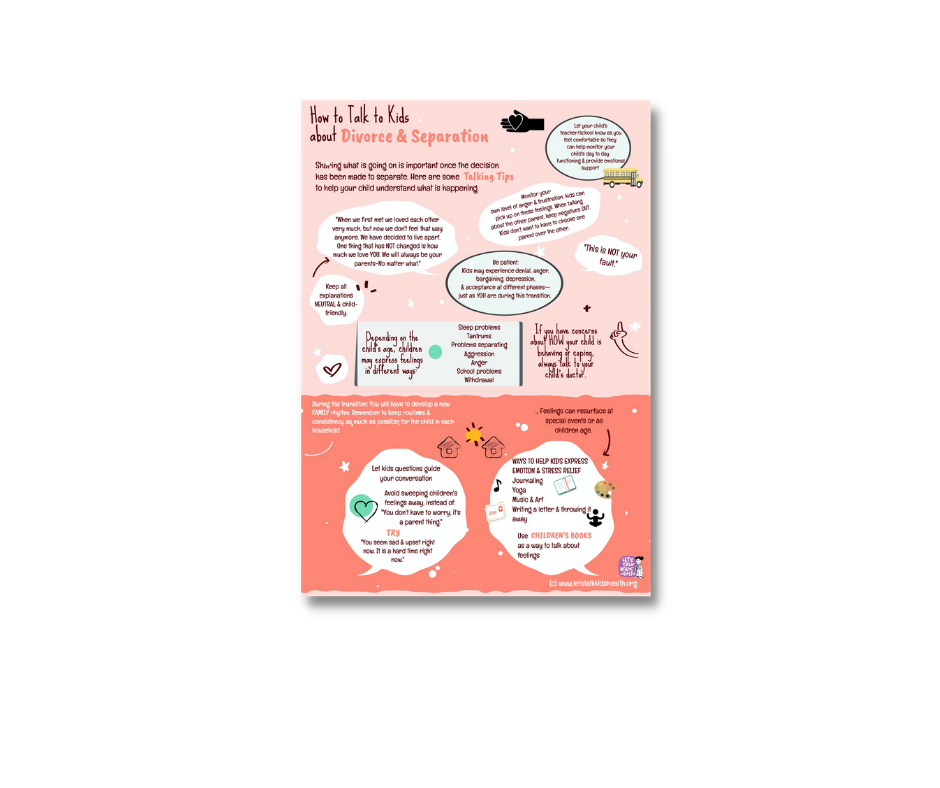When Divorce Happens: Stay Child-Focused
Jun 17, 2021
Sometimes relationships end in divorce or separation. It is one of the more common “adverse childhood experiences” that can occur over the course of a child’s lifetime. Almost 50% of all first time marriages will end in divorce within 15 years, according to the CDC .
It is never an easy decision to end a relationship…even harder when children are involved. So what do you do when divorce or separation is inevitable?
Stay child-focused.
The Truth About ACEs Infographic by RWJF on RWJF.org
What do you tell the kids?
More importantly, HOW do you tell the kids? How MUCH do you share with them?
These types of questions are not uncommon when parents make the decision to separate or divorce.
Parents should expect their children (and themselves) to go through the five stages of grief (denial, anger, bargaining, depression and finally, acceptance). However, parents should be prepared for how children react to the news. There is no one way to respond. Upon hearing the news, kids can be angry, shocked, sad, scared and everything in between.
We know that it can impact children negatively, in the short and long-term. Depending on their age, children can have sleep or mood problems, may become clingy, have tantrums or lead to school problems.
I developed a one page handout with talking tips for parents who are unsure of how to start the conversation. It is already a stressful time, so I wanted to give families a way to talk about it while staying child-focused.
Download your copy by clicking here.

How to Buffer the Effects of Divorce or Separation
However, we also know that there are certain factors that can buffer the negative effects, such as if parents are able develop and maintain a co-parenting relationship that keeps the focus on the child, if the child has a good relationship with at least one parent, parental warmth and sibling support. When fathers are able to stay involved, children fare better, especially if there is low conflict after the divorce/separation.
For a practical and easy to read co-parenting self-help book, check out one of my favorites that I recommend to families called “Parents are Forever: A Step-by-Step Guide to Becoming Successful Co-Parents after Divorce” by Shirley Thomas.
*Amazon Affiliate link
Remember, if you have concerns about how your child is feeling or handling the situation, reach out to your child's pediatrician. They can screen for and identify depression, anxiety or other behavioral issues that may come up.
Join my Facebook Community to talk more about this blog post and get more parenting support!
Stay connected with news and updates!
Join my mailing list to receive parenting tips and resources, including information about my weekly Facebook Live guests and workshops.
And don't worry, your information will not be shared.
We all hate SPAM. So I promise to never sell your information, for any reason.

